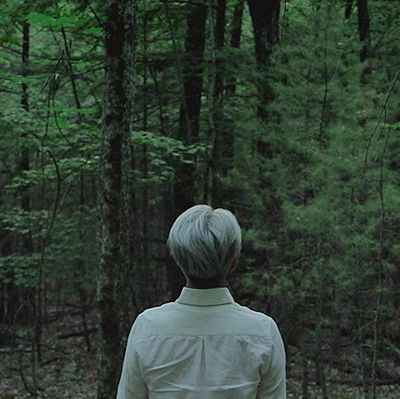
A late-career documentary can be many things: a gift to longtime fans, a primer for new ones, a victory lap. The best, I think, can function as some combination of the three. For a living legend looking back on their legacy, the film’s role isn’t to argue their significance but rather examine it; how didactic you want to go depends on the filmmaker and the subject. With a light touch but deep reserves of respect for fans both old and new Ryuichi Sakamoto: Coda is an extremely fitting portrait of the influential composer. There’s an air of patience that presides over director Stephen Schible’s footage, even during a period that presents a lot of tumultuous questions for his seemingly unflappable subject.
Sakamoto’s 2014 throat cancer diagnosis serves as a kind of catalyst for the film, and naturally becomes the prism through which the artist assesses much of his career. But the existential questions it dredges up result in a film that is more about Sakamoto constantly seeking a connection between his work and humanity, nature, and other creators’ art. The opening sequence sees Sakamoto touring the disaster site of the Fukushima nuclear disaster, where he finds a previously submerged piano in an abandoned school and attempts to tune and play it. It’s a moving conceptual counterpoint to Sakamoto’s more practical anti-nuclear activism. It comes full circle by the end of the documentary, where Sakamoto’s artistic relationship to disaster — natural and otherwise — is explored more fully.
Schible moves from subject to subject intuitively, often letting sound lead the way. The nostalgic ’80s-ish sound of a track that would end up on Sakamoto’s 2017 album, async, becomes the jumping-off point for a look back at his early career in bubbling 1970s Tokyo. The sound of a passing siren outside his Greenwich Village apartment brings back his memories of being in the neighborhood during 9/11, and the music he composed in response to it and the Iraq War. Throughout all this, Sakamoto is the sole narrator, the chapters of his career are all told in his voice, and it never feels insufficient. Schible sparingly and strategically uses archival footage (a delightfully far-out late-’70s concert with his band Yellow Magic Orchestra is a particular highlight) and weaves in clips from the films Sakamoto has scored seamlessly, drawing attention to the music in ways you might not have appreciated before. (There are a few early scenes of him working on the score for Alejandro Iñárritu’s The Revenant, one of the few assignments he took after his diagnosis.)
There have been some observations after the film’s Venice premiere that Schible doesn’t delve enough into Sakamoto’s personal life, his past marriages, or his relationship with his manager and the mother of two of his children — especially given the impact that his illness must have on them. But I don’t know how you walk out of Coda and feel that it’s lacking that. Listeners know him through sound, and getting a closer look at how and why that sound is made is personal on a separate but equally vital level. Watching him sketch out chicken-scratch piano scores as casually as his own written language, or wander around a forest wordlessly taking field recordings as Schible unobtrusively tags along behind, feels intimate on a level we rarely get in music documentaries on artists of this stature, and Schible takes his time with these scenes, letting them breathe.
Coda ends rather abruptly, but on a note of hopefulness for its subject’s continued proliferation of work. It feels of a similar mind-set to The Kingdom of Dreams and Madness, the 2015 Studio Ghibli documentary that goes behind the scenes of the (supposed) final film of Hayao Miyazaki and the (actual) final film of the late Isao Takahata. Both films depict revered, staunchly antiwar Japanese artists dismayed at the country’s turn toward right-wing politics in the autumn of their lives, and both notably omit their subjects’ personal lives from the picture. The task of documenting a sensitive creative person cursed and blessed with the unshakable need to address the tragedies and joys of the human condition, even into old age, is heavy enough to fuel multiple feature films. Schible, using a minimum of elements, makes deceptively light work of it, but Coda’s impact lingers hours, even days after the credits roll.

